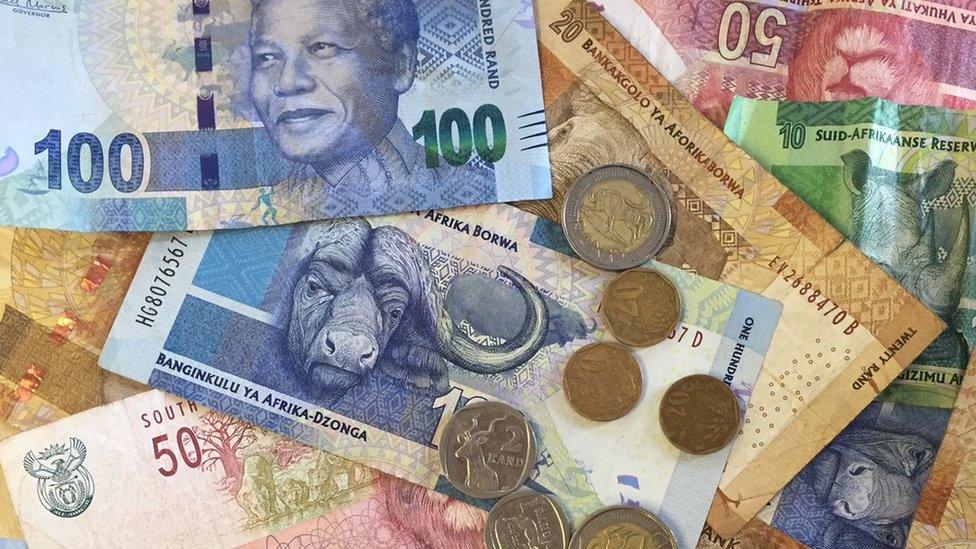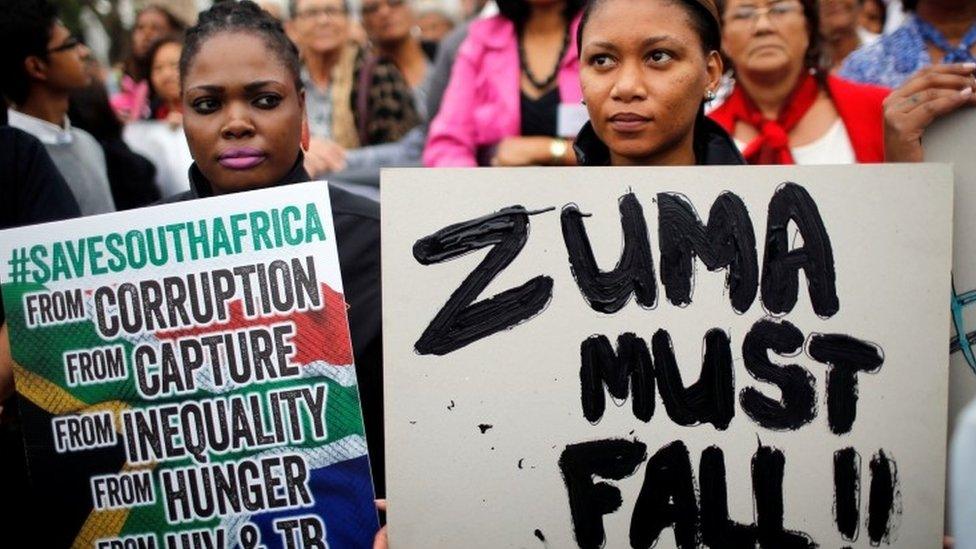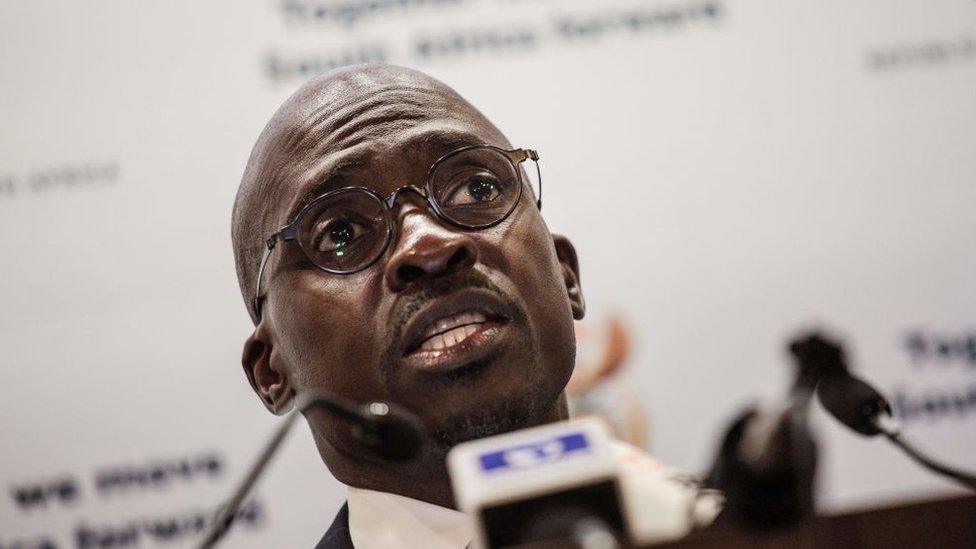South Africa's tough road out of junk status
- Published

The rand has come under pressure since the credit rating was downgraded on Monday
The immediate impact of South Africa's ratings downgrade by Standard & Poor's is largely seen on the screens of financial traders.
The country's currency, the rand, has lost ground, bonds and banking shares have fallen and there is a general air of impending doom.
Of the big three ratings agencies, only Standard & Poor's has lowered South Africa's sovereign debt to below investment grade.
Should Moody's or Fitch follow suit, big international investors like pension funds would be forced, under their own rules, to sell their South African government debt. Those rules require two of the three to move to junk status.
South Africa's major banks have been quick to point out that they are financially sound and well-positioned to withstand the impact of sovereign rating downgrades.
Nonetheless, banking shares are taking a significant battering.
But the turmoil on the currency, bond and equity markets will spread to the wider economy soon enough.

Demonstrators came out in the capital, Pretoria, in response to the news of Finance Minister Pravin Gordhan's sacking last week
As the rand falls, inflation will increase. This is because the price of imported goods rises in local currency terms. The flip side of this is that exports become cheaper and more competitive.
As inflation increases, the central bank, the Reserve Bank, will have to increase interest rates as a counter measure. This makes the cost of mortgages, home loans and any other borrowing ordinary South Africans want to do more expensive.
It also makes the cost of borrowing for companies more expensive and, as such, plays a role in slowing economic growth.
Higher borrowing costs and slowing economic growth can lead to job losses. South Africa's economy grew by just 0.3% last year and is not expected to top 1% this year.
In fact, some economists are saying the downgrade to junk has the potential to trigger another recession.

South Africans may see higher prices in the shops as a result of the rand losing its value
Getting out of junk status is difficult. According to Bloomberg, over the past 30 years only six of the 20 countries that have fallen into junk status have managed to claw their way out of it.
And the time taken for those who re-acquired an investment grade rating ranges from 13 months to 11 years. The average time is around seven years.
So, has the mirror cracked? Are South Africans in line for seven years of bad luck?
The initial signs are not good. But up until now the ratings agencies have been pretty patient with South Africa.
They warned that political infighting and slow economic growth were the main factors that could lead to a downgrade.
And they have been saying that for over a year.

South Africa's new Finance Minister Malusi Gigaba says economic change has been too slow
What kept the finger off the junk status button was confidence in former Finance Minister Pravin Gordhan, but also a knowledge that South Africa has strong institutions and a working democracy.
It also has a number of sectors which are among some of the best in the world, particularly mining and financial services.
If a good degree of political stability can be achieved quickly and sustained going forward, the chances of South Africa pulling itself out of junk status in less than seven years improve dramatically.
If not, the country risks falling off the radar of the international investment community. If that happens, times could get tough, and stay tough for millions of South Africans.
- Published1 April 2017
